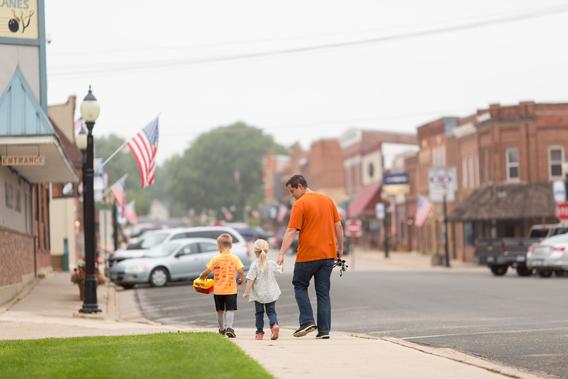
A new CFANS Insights survey conducted by the University of Minnesota’s College of Food, Agricultural and Natural Resource Sciences (CFANS) in collaboration with MCAP takes a closer look at Minnesotans’ perspectives on climate change.
“Understanding how Minnesotans feel about climate change is vital to engage in effective conversations and accelerate climate action across the state,” said Heidi Roop, Ph.D., director of MCAP and an assistant professor of Climate Science in CFANS. “This survey shows that while overall concern is greatest with Gen Z, a deeply climate-conscious generation, there is warranted concern across age groups, and that hope and a desire for action are at the heart of Minnesotans attitudes about climate change.”
Key Results
- 76% of residents are concerned about climate change. Of Gen Zers surveyed, 85% are concerned about climate change.
- 57% of people responded that climate change impacts to the state’s lakes and rivers are their biggest concern.
- 64% of respondents recommend the state focus on preserving and conserving Minnesota's grasslands, forests, and wetlands.
- 60% of respondents said that they would most like to see increased use of wind, solar and other renewable energy to power homes and businesses in Minnesota.
- 56% of Minnesotans are hopeful that society will do enough to reduce the most severe impacts of climate change. That response went up to 62% for Gen Zers surveyed.
MCAP’s Work to Address Climate Change in Minnesota
MCAP recently hired a new Extension educator dedicated to agricultural climate resilience in Minnesota. This role focuses on developing dedicated climate-smart agriculture programming — centered around a CFANS-led agricultural weather study — that will help Minnesota’s diverse agricultural sector understand its unique climate risks and prepare to effectively manage them. An Extension educator dedicated to natural resource resilience will also join the team in November.
In addition, MCAP was named a key partner in the state’s Climate Action Framework for helping to build needed capacity to protect Minnesotans against the impact of climate change. MCAP is providing critical research capacity to help the state track its progress in achieving its goals for building resilient communities.
These are just two of the ways in which MCAP is working to increase climate resilience across regions and sectors in Minnesota.
“To avoid the worst impacts of climate change, we need to focus on both mitigation and adaptation — addressing the root causes of climate change while also preparing for future impacts,” said Roop, who also serves as an UMN Extension Climate Specialist. “Together, through research, experimentation, collaboration and leadership, we can help ensure that Minnesota is ready for the impacts of climate change today and tomorrow.”